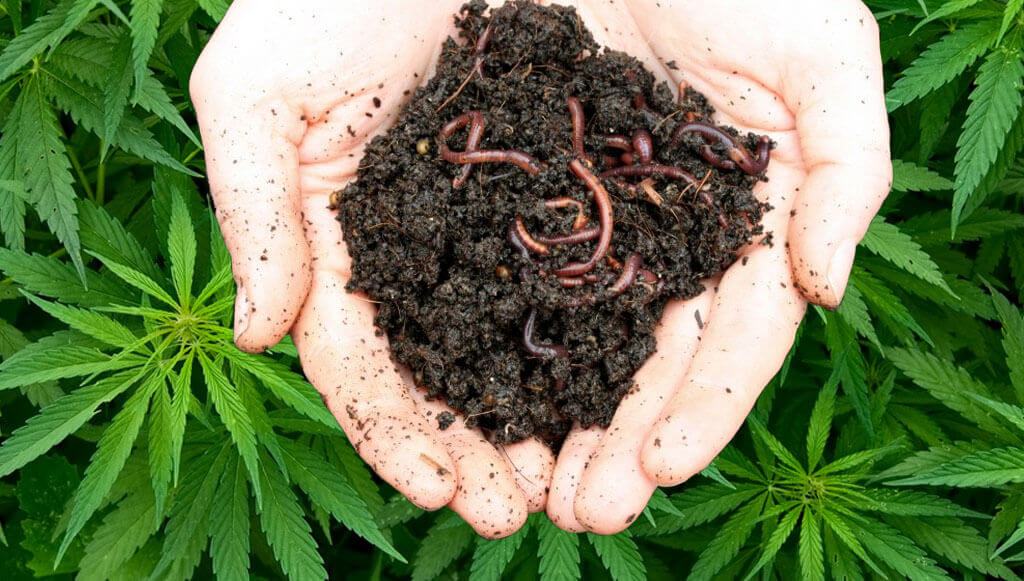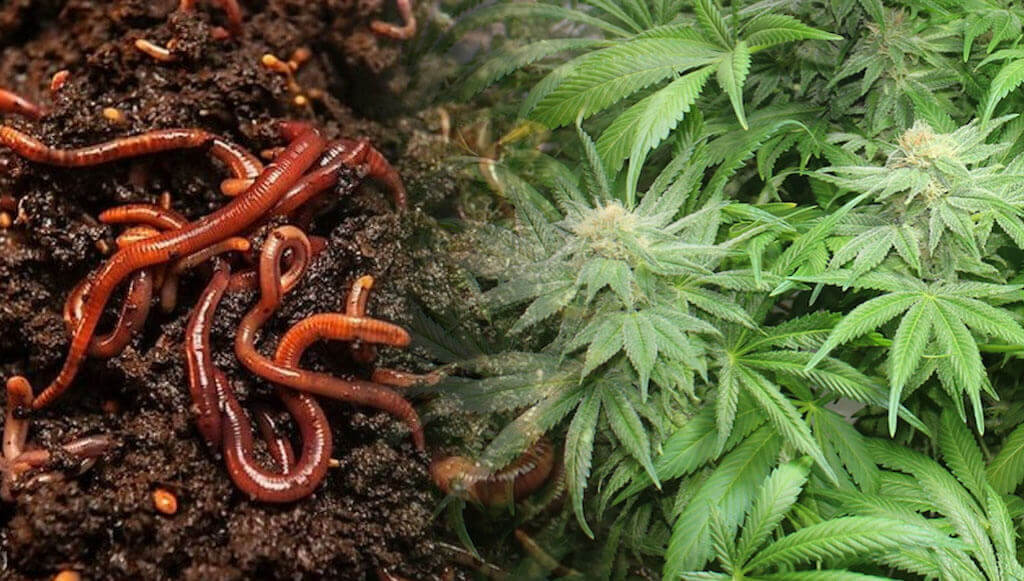Earthworms are an essential part of soil life and the biological processes in it; these striped worms eat alive and dead organic material, and have been living in the Earth for millions of years.
The influence of earthworms in vegetal kingdom is very important; their food and droppings generate a soil rich in nutrients and minerals, essential for the proper development of the plants, that is, they decompose the soil organic material through their digestive system, and they generate humus full of bacteria, protozoa and nematodes, revitalizing the soil and stimulating the vegetal development: an ecological, organic, natural way to provide the adequate substrate and nutrients your plants need.
Next, we describe these processes and their pros:

How does worm humus work?
Humus contains bacteria and protozoa which nourish the soil, providing an adequate environment for the development of the root systems, and reducing the risk of diseases; those bacteria fix nitrogen, transforming it into an easy way for the plants to be assimilated. Besides, the protozoa also release nitrogen, so the strains can properly assimilate the bacteria and fungi.
Those bacteria, collected in worm humus, boost the decomposition of dead organic material; humus symbiotic fungus – mycorrhiza fungus – colonizes the roots of the plants, so the phosphorus becomes soluble, stimulating the growth of the root system and increasing the strength of the strains against diseases and weather inclemencies. Lastly, the nematodes are also important in all this process, eating unwanted bacteria and fungi, and releasing other beneficial ones; all these processes help keep a constant pH level in soil.
How to use it

Humus is ideal compost, really easy to use – just add it to the substrate and blend it adequately; the plants cannot survive just with humus – when flowering, the plants need other specific composts. Besides, it has to be carefully applied – excess humus could paralyze the crop development: humus quantity is three times smaller than soil – even less.
Lastly, humus is ideal for germination and growth of the plant and the root system – when flowering, other composts are needed.
Benefits
Worm humus pros are multiple and varied, partially mentioned above; anyway, we could summarize them, so you would get to know them properly.

Worm humus nourishes the soil 100% ecologically, avoiding harmful-to-the-environment chemical products, and obtaining plants with minor entropy – molecule disorder – and much tastier buds – guano generates soil rich in nutrients, advanced minerals, protozoa, nematodes, fungi and beneficial bacteria for proper strain development and maximum performance; a cheap, simple way to work on ecological grows.
With this compost, your plants will grow faster, more vigorous and branched, producing a structure which perfectly supports the weight of the huge buds it is going to generate; this is growth compost, so, when flowering, other organic composts are needed – for instance, Bio Bizz range.




What ratio of humus in mulch, n ratio of mulch to dirt? Thanks
The proportion will depend on the type of humus.
Each manufacturer indicates the ideal dosage in the instructions.
As a general rule, 30% or a third of humus is usually added and the rest of the substrate.